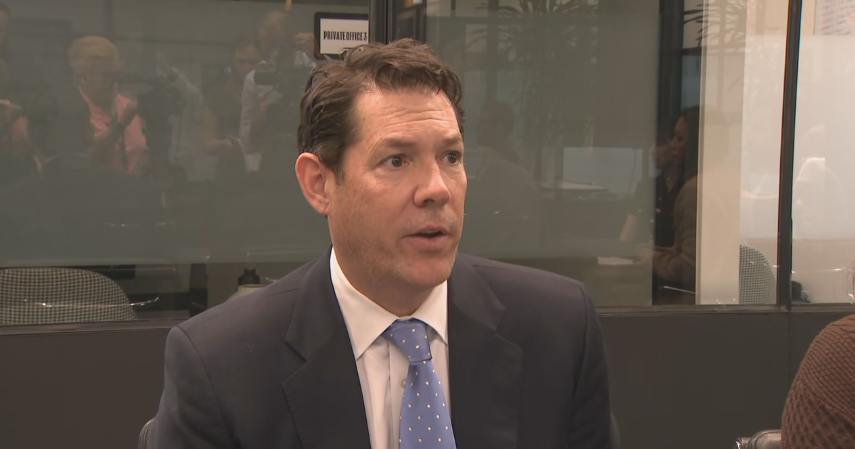2 Investigators: Low-T Drugs Could Have Dangerous Side Effects
(CBS) -- It's a billion dollar a year business. Millions of men are taking testosterone drugs many to help increase energy, libido and muscle mass.
But now dozens of lawsuits are alleging that the warnings about the possible risks for the FDA approved testosterone drugs are not adequate.
Commercials for products like AndroGel have encouraged men like Edward Downes to try them. Downes was attracted to suggestions in the advertising that it could increase his energy and libido.
"I thought well it might be something good for me," Downes recalled. "I decided why not give it a shot."
But after about two years of using AndroGel, Downes had a stroke, which he blames on the drug.
"I was in a lot of pain. Dizziness. Confusion," Downes recalled.
Downes is still struggling to recover and now plans to sue.
"We believe there's an egregious failure to warn in the package insert, in the television advertising, said Downes' Attorney Scott Levensten. "And had Mr. Downes known of the risk of heart attack and stroke he never would have taken this product."
In a written statement, Abbvie, the maker of AndroGel defends its testosterone products saying it has..."more than ten years of clinical, safety, published and post marketing data, with known therapeutic risks well documented in their prescribing labels." Those risks are also listed on the company website and include blood clots and hypertension as side effects.
Now the Public Citizen's Health Research Group, a consumer advocacy group has petitioned the FDA to require that all testosterone drugs have stronger warnings on their packaging about cardiovascular dangers.
"The FDA as of now is reckless in not warning doctors and patients in this country of the increased risks of heart attacks when using testosterone," said Dr. Sidney Wolfe, M.D., Public Citizen's founder.
His petition points to several studies including the most recent that found that AndroGel and other testosterone products doubled the risk of heart attacks in men over 65 and in younger men with a history of heart disease possibly due to increased production of red blood cells.
"The jury is still out on the studies," said Dr. Paul Savage, who prescribes testosterone as part of his practice at Vidabem Treatment Centers.
He says the key is for doctors to conduct a proper patient evaluation, including a blood test to determine if the patient is suffering from low testosterone and monitoring testosterone levels after the patient starts receiving the drug.
"For the men who qualify, giving them testosterone has had a remarkable change in their life," Dr. Savage said.
But Dr. Wolfe says studies show many men taking testosterone have never even been tested to see if they need it. And he's concerned about the hype in the commercials.
"It's recruiting all sorts of men who really shouldn't be taking testosterone to taking a drug that can increase their risk of heart attack."
Besides Androgel, there are at least eight other products named in lawsuits.
The FDA has issued a statement saying as a result of two recent studies it is now going to investigate the cardiovascular risks for men taking testosterone products which are FDA-approved only for use in men who lack or have low testosterone levels in conjunction with an associated medical condition.
But the FDA "safety announcement" says, "At this time it has not concluded that FDA-approved testosterone treatment increases the risk of stroke, heart attack or death," and patients should not stop taking prescribed products without first discussing questions or concerns with their health care professionals.







